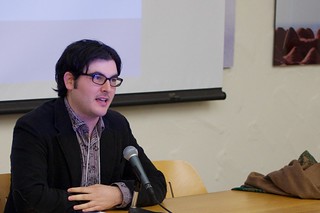On this 10th anniversary of CC, there’s much to celebrate: Creative Commons licenses and tools have been embraced by millions of photographers, musicians, videographers, bloggers, and others sharing countless numbers of creative works freely online. One area of growth in use of CC licenses and public domain tools is for government works. Government adoption of Creative Commons may prove to be one of the most significant movements looking into the future. Said well by David Bollier, “Governments are coming to realize that they are one of the primary stewards of intellectual property, and that the wide dissemination of their work—statistics, research, reports, legislation, judicial decisions—can stimulate economic innovation, scientific progress, education, and cultural development.” If governments around the world are going to unleash the power of hundreds of billions of dollars of publicly funded education, research and scientific resources, we need broad adoption of open policies aligned with the belief that the public should have access to the resources they paid for. At a fundamental level, “all publicly funded resources [should be] openly licensed resources.”
CC licenses and tools have been implemented by government entities and public sector bodies around the world. And over the last few years, there’s been an increasing focus in governments aligning to the principle that the public should have access to the materials that it pays for. These funding mandates, which require that grantees release content produced with grant funds under an open license, has been a increasingly commons way for governments to support openness. Legislation involving the open licensing of publicly funded educational materials has been passed in Brazil, Poland, the United States, and Canada. The UK has championed an open access policy for publicly funded research under the Creative Commons Attribution (CC BY) license. Governments in Australia and New Zealand have opted for comprehensive open licensing policies for all government-produced works, by default releasing public information and data under CC BY. The Dutch government has taken this one step further, opting to release government information directly into the public domain using the CC0 Public Domain Dedication.
In addition to governments, other publicly-minded institutions like philanthropic foundations and intergovermental organizations are supporting open licensing. Several foundations have already implemented or are considering requiring open licensing on the outputs of their grant funds, including the William and Flora Hewlett Foundation , the Open Society Foundations, and the Bill & Melinda Gates Foundation already require their grantees to release content they build with grant money under open licenses. And CC continues to explore how to evaluate current copyright policies within the foundation world and suggest how foundations (and their grantees) can benefit from open licensing for their grant funded materials. Intergovernmental organizations like the Commonwealth of Learning and the World Bank have adopted open licensing policies to share their publications too.
Open advocates – whether it be in support of open sharing of publicly funded educational materials, open access to scientific research articles, access to a huge trove of cultural heritage resources from libraries and museums, or open licensing for public sector information and government datasets – have been increasingly active over the last few years, particularly in working to educate policymakers about the importance and benefits of open licensing. These efforts include the development of declarations such as the Budapest Open Access Initiative, Cape Town and Paris Declarations on Open Educational Resources, the Washington Declaration on Intellectual Property and the Public Interest, the Panton Principles, and many others. Advocates have been key in communicating the need for governments to consider open licensing, whether it be for federal agencies, governing bodies like the European Commission, or through multilateral negotiations such as WIPO. And the grassroots open community has been extremely active in raising awareness of open licensing, whether it be through the tireless work of CC Affiliates, the broad network of open data activists from the Open Knowledge Foundation, legal experts championing Open Government Data Principles, and persons participating in events from Open Access Week to Public Domain Day. All of these actions have rallied around the common theme that governments and public bodies should release content they create or fund under open licenses, for the benefit of all.
Since the beginning of Creative Commons, governments and public sector bodies have leveraged CC licenses and public domain tools to share their data, publicly funded research, educational and cultural content, and other digital materials. But if adoption of CC licenses on behalf of governments has not been a core mechanism for proactively sharing resources, promoting effective spending, and championing innovation, it is clearly now central to any forward-looking strategy. A massive amount of work is ahead, and with a committed community of advocates, interested governmental departments, and open minded policymakers, we can together work toward a close integration of open licensing inside the public sector. If we do so, governments can better support their populations with the information they need, increase the effectiveness of the public’s investment, and contribute to a true global commons.
 Throughout the #cc10 celebrations, we’re highlighting different CC-enabled media platforms, to show the breadth and diversity of the CC world. Today, as we’re talking about governmental and institutional adoption of CC tools, it seemed appropriate to discuss Europeana, the massive digital library of European history and culture.
Throughout the #cc10 celebrations, we’re highlighting different CC-enabled media platforms, to show the breadth and diversity of the CC world. Today, as we’re talking about governmental and institutional adoption of CC tools, it seemed appropriate to discuss Europeana, the massive digital library of European history and culture.

